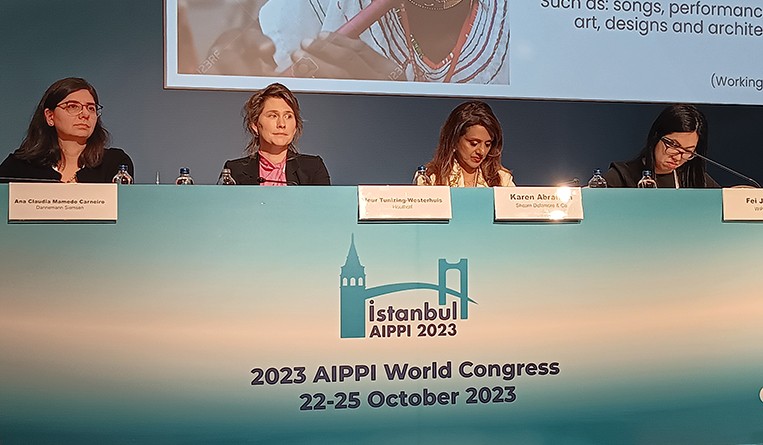AIPPI 2023: Who owns the rights?
26 October 2023

AIPPI 2023: Who owns the rights?
The 2023 AIPPI conference, held at the Hilton Istanbul Bomonti Hotel & Conference Center in Istanbul, witnessed a panel discussion titled “Model for the Future: Traditional Knowledge.” During this session, Karen Abraham, IP department head at Shearn Delamore & Co. in Kuala Lumpur, addressed one of the main problems surrounding Traditional Cultural Expression (TCEs) – the identification of beneficiaries.
TCEs include various forms of traditional knowledge and cultural expressions, such as songs, performances, crafts, arts and designs. Abraham also raised critical questions of ownership and beneficiaries. “Are these owned by the indigenous communities, communities and the public, or the government?” she asked.
In 2021, the International Association for the Protection of Intellectual Property (AIPPI) conducted extensive research on this issue, gathering information from national groups within AIPPI. They distributed a Frequently Asked Questions (FAQ) document to their members and found diverse answers regarding who should benefit from TCEs.
In Brazil, the answer was indigenous communities, while China identified communities and the public as beneficiaries. In Indonesia, the government held the rights to TCEs due to their copyright law dealing with them.
Meanwhile, the World Intellectual Property Organization (WIPO) has been deliberating on becoming inclusive and definitive and delivered four definitions to indigenous communities. In addition, Abraham emphasized the importance of legislators balancing the protection of rights without diluting them.
Also, she said that among the definitions, one major issue that arose was including other beneficiaries beyond the communities. For example, Uganda is home to hundreds of refugees who may not be indigenous, and Australia has embraced other communities that have been part of their country. While the United Nations’ definition of the rights of indigenous people in 2007 acknowledges the equal human rights of indigenous people and cultural discrimination, Abraham asked: “Are we leaving some of these communities out?”
She was quick to say, however, that despite these issues, some countries have found success. In Australia, the community collaboratively sought and obtained cultural damages. Similarly, communities in the Philippines and Kenya in Africa have established collective marks, which can be registered under the trademark regime. Some communities have also adapted their existing laws to ensure government protection of their rights.
The panel also featured Fei Jiao, a program officer at WIPO’s traditional knowledge division; Ana Claudia Mamede Carneiro, a partner at Dannemann, Siemsen, Bigler & Ipanema Moreira in São Paolo; and Fleur Tuinzing-Westerhuis, a counsel at Houthoff in Amsterdam.
- Excel V. Dyquiangco






